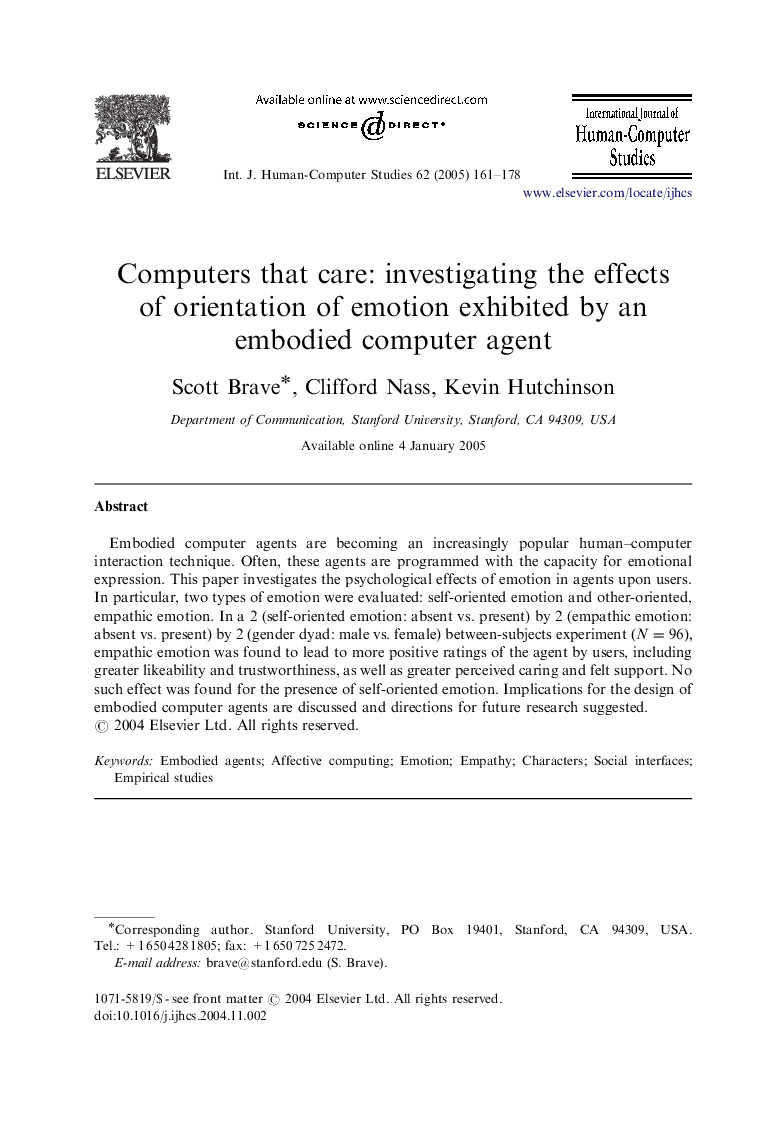| Article ID | Journal | Published Year | Pages | File Type |
|---|---|---|---|---|
| 9652530 | International Journal of Human-Computer Studies | 2005 | 18 Pages |
Abstract
Embodied computer agents are becoming an increasingly popular human-computer interaction technique. Often, these agents are programmed with the capacity for emotional expression. This paper investigates the psychological effects of emotion in agents upon users. In particular, two types of emotion were evaluated: self-oriented emotion and other-oriented, empathic emotion. In a 2 (self-oriented emotion: absent vs. present) by 2 (empathic emotion: absent vs. present) by 2 (gender dyad: male vs. female) between-subjects experiment (N=96), empathic emotion was found to lead to more positive ratings of the agent by users, including greater likeability and trustworthiness, as well as greater perceived caring and felt support. No such effect was found for the presence of self-oriented emotion. Implications for the design of embodied computer agents are discussed and directions for future research suggested.
Related Topics
Physical Sciences and Engineering
Computer Science
Artificial Intelligence
Authors
Scott Brave, Clifford Nass, Kevin Hutchinson,
